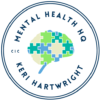
Anxiety is an emotion we all feel and it is there to protect us from danger. It can sometimes get a bit overwhelming and learning how to recognise when you are feeling anxious and how to relax is really important.
It is exam time for many young people in schools up and down the country whether it is for GCSEs, mocks, or end of year exams it is a time when anxiety might rear its head.
How are anxiety and learning linked?
When a young person feels a bit anxious they will start to produce adrenaline and cortisol which will make them go into fight or flight mode. This is a response that was developed in cave man times when we needed to fight or flee from our predators which is not a need now. When this happens the amygdala (security officer of the brain) takes over and we lose the ability to think clearly. We cannot then access information we already know or have learnt and it can in exams cause blanking.
Heightened anxiety can also make learning a bit difficult as it stops the person taking on new information. Working on relaxing is key.
What else can contribute to anxiety in exams?
Most young people I meet tell me they prefer to go to bed at around midnight or later. This could be due to the fact that the hormone melatonin is released later in adolescence. Unfortunately for them they still need to get up for school in the morning. This means that they are generally sleeping less than they need to. Studying right up until bed time will also make it harder for them to switch off. Sleep is crucial for new knowledge to reach our memory stores. Encouraging a reasonable bed time with a good sleep routine factoring in a wind down is key.
Breakfast, or lack of it can also be a problem in young people who don’t want to eat first thing. Having something to eat before an exam will give them the energy they need to get through it.
What can they do if their mind does go blank in their exam?
Working out a good way to calm themselves relatively quickly is a good thing to do. Breathing is important to focus on, check out my post on the importance of breathing. If they are find their mind blanks, first answer the questions that comes easily. Once they have the easy points return to one they have blanked on. If they are really struggling, get them to focus on their breathing for a minute or so. They can do this with their eyes open or shut. When they are feeling calmer they should be able to find the knowledge they have again.
For help to manage your young person’s exam nerves preparing them for success, or to give them techniques to relax why not book an appointment today?
